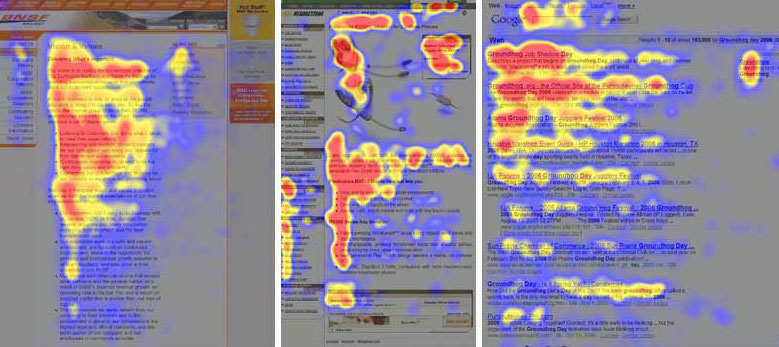Every company wants to be more productive and maximize profit, and to do so, many of them use large-scale productivity suites and apps. But what if I told you the key to productivity was not using a tech giant, but rather, receiving personalized support from a smaller company that can provide you dedicated resources? But Julia, you say, I love how Dropbox/Evernote/Asana/etc. has increased my team’s productivity! Automation! Isn’t involving extra humans an unnecessary step? Respectfully, no.
When Big Tech Is Not the Answer—Why Small Businesses Get More Done
Tags: Control, Continuity
Military officers deploying abroad and executives conducting activities overseas often receive cultural training designed to help them avoid offending host country nationals and to negotiate effectively with host country counterparts. Such cultural training usually covers the meaning of gestures in the foreign context, basic pleasantries in the foreign language, and generalities such as “Japanese will try to avoid saying no” or “Jordanians are renowned for their hospitality.” While necessary, such cultural training often falls short of meeting the needs of a person entering not only an unfamiliar culture but an unfamiliar political and historical context. A case in point is Turkey, which has a complex history of secularism, pan-Islamism, pan-Turkism, Kurdish separatism, militant leftist movements, and empire fragmentation, as well as military, political, and legal ties to the West.
Tags: Context
Afghanistan Is Finally Holding Elections—While the Taliban Gobbles Up Territory
Tags: Complexity, Control, Foreign Affairs
The Geospatial Data Act of 2017: A Necessary Step Forward, with One Major Flaw
Even the casual observer will likely have noticed a greater prevalence of the words "geospatial" or "GIS" over the past few years, and for good reason. The use of geospatial data is not limited to geographic information systems (GIS) professionals wading deeply into complicated software. Each of us uses geospatial data on a daily basis, primarily through the apps on our beloved devices, such as Google Maps, Yelp, Instagram, Snapchat, Facebook, and others. But GIS exists in quiet capacities far beyond our toys. Geospatial data and GIS play critical roles in the background of the modern economy and governance, enabling everything from delivery of fresh food in supermarkets to tracking of national security threats in conflict zones around the world. The software industry alone accounts for billions of dollars in sales every year. And the demand for both open- and closed-source geospatial data to keep our government and military on the cutting edge is certain to increase in the future.
Tags: Data Visualization, Control, GIS
Vector vs. Raster: What Do They Mean and Which Should I Use?
If graphics fall short on clarity during a client demonstration, the audience may not trust the credibility of the messaging all together. One of the first concepts we learn as designers is how to make your art look clean and clear of distraction. Whether you need your logo scaled to the size of a billboard or a photograph to display elegantly on your website, the way you save your file can determine the effectiveness of your presentation. That’s why formatting images properly is such an important factor in presenting your work professionally.
Tags: Data Visualization, Complexity, Control
Does the process of obtaining a security clearance feel as grueling and unending as Frodo Baggins's quest to destroy the One Ring of Power? Does the idea of "reciprocity" in the security realm seem like a dream from the best of all possible worlds? Do clear and definitive security regulations seem to be as accessible as stone tablets inscribed in dead languages hidden in forgotten ruins in Middle Earth?
If you answered "yes" to any of these questions, you're not alone. Before the OPM data breach, the average wait time for a clearance was 1-3 months for a Confidential or Secret and 4-8 months for a Top Secret. Since the breach, times have doubled on average, and as FSO at Tesla, I have seen individuals trapped in security limbo for three+ years without getting final eligibility. The slow pace of this process poses obvious challenges to individuals with a legitimate need to know who require access to classified and control marked information to do their jobs.
Tags: Control
5 Steps to Stop Information Hoarding and Encourage Collaboration
“Information sharing” isn’t just a buzzword, it’s a reality for modern-day government operations. However, sharing is difficult. We learned from the 9/11 Commission that the lack of information sharing was a major factor leading to the terrorist attacks that claimed thousands of lives. Looking at the commission’s report, most Americans shake their heads and bemoan the inability of the federal government to have prevented the attack.
The problem seen with information sharing between the FBI and CIA is not unique to those organizations. It’s not even unique to the federal government. We have all faced the challenge of needing information we did not have or did not know existed.
Tags: Control
Did you know that you have access to robust conflict data on Africa? Or that the United Nations High Commissioner for Refugees (UNHCR) and the United States Agency for International Development (USAID) have made reports on refugee situations throughout the Middle East available to you? What about World Bank project information? Did you know it can be readily found online? Yes, I’m speaking to you, the everyhuman at your desk (or let’s be honest—on your phone). You don’t need to be in government or work for a fancy firm to find this information.
Holding 59% of Backlogged Clearances in Its Hands, DoD Announces New "Lines of Effort"
Obtaining a security clearance can feel like the long march to Mordor: just when you think you have arrived, an angry little monster shows up to set you on a detour that eventually involves crossing paths with a venomous spider. And you lose a finger.
Tags: Control
What if I told you that the majority of visitors to your site aren't actually reading your content but are just skimming it? The fact is most people simply don't bother reading everything on your page. There are many reasons for this, but they all stem from a simple notion: the ways people read online versus with print are completely different. To have customers or readers spend more time on your webpage and get the most out of your content, you need to understand how to write for the web, but you can only get there if you understand how to read on the web.










